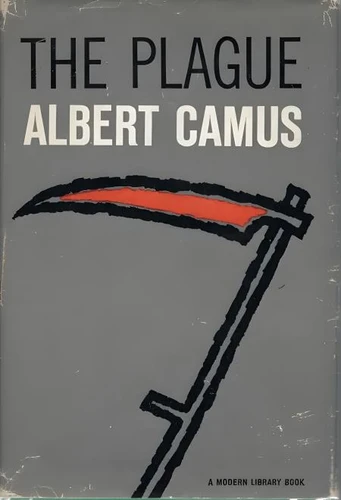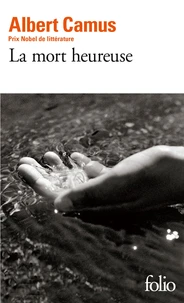"The Plague" (French: "La Peste") is a novel by Albert Camus, published in 1947. Set in the Algerian coastal town of Oran, the story revolves around a sudden and inexplicable outbreak of bubonic plague, isolating the town from the rest of the world. This event plunges the citizens into a state of fear, confusion, and uncertainty as they grapple with the escalating crisis. The narrative primarily follows Dr.
Bernard Rieux, a physician, who tirelessly works to combat the disease while witnessing the suffering and death it inflicts on the population. Rieux, along with other characters such as journalist Raymond Rambert, Father Paneloux, and the enigmatic figure of Jean Tarrou, symbolizes various responses to the plague and the human condition under duress. Camus uses the plague as a metaphor for various aspects of the human experience, exploring existential themes of absurdity, the struggle for meaning in the face of suffering, and the nature of heroism and solidarity.
The novel portrays the societal breakdown caused by the epidemic, as well as the resilience and camaraderie that emerge amidst the chaos. Through powerful and evocative prose, Camus delves into philosophical reflections on morality, the human response to adversity, and the significance of human connection in times of crisis. "The Plague" is considered a literary classic, renowned for its profound exploration of the human condition and its enduring relevance in reflecting on the complexities of existence, morality, and the fragility of human life.
"The Plague" (French: "La Peste") is a novel by Albert Camus, published in 1947. Set in the Algerian coastal town of Oran, the story revolves around a sudden and inexplicable outbreak of bubonic plague, isolating the town from the rest of the world. This event plunges the citizens into a state of fear, confusion, and uncertainty as they grapple with the escalating crisis. The narrative primarily follows Dr.
Bernard Rieux, a physician, who tirelessly works to combat the disease while witnessing the suffering and death it inflicts on the population. Rieux, along with other characters such as journalist Raymond Rambert, Father Paneloux, and the enigmatic figure of Jean Tarrou, symbolizes various responses to the plague and the human condition under duress. Camus uses the plague as a metaphor for various aspects of the human experience, exploring existential themes of absurdity, the struggle for meaning in the face of suffering, and the nature of heroism and solidarity.
The novel portrays the societal breakdown caused by the epidemic, as well as the resilience and camaraderie that emerge amidst the chaos. Through powerful and evocative prose, Camus delves into philosophical reflections on morality, the human response to adversity, and the significance of human connection in times of crisis. "The Plague" is considered a literary classic, renowned for its profound exploration of the human condition and its enduring relevance in reflecting on the complexities of existence, morality, and the fragility of human life.

























